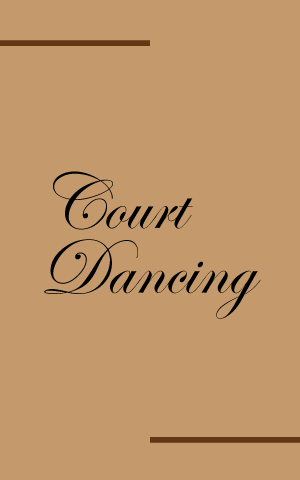Download Script | Free

COURT DANCING is three related one-act plays that deal with the German experience in the United States between and after the World Wars. All three plays are set in the Palm Court of a New York City hotel.
The first play, “Polka” is set in 1925. Juliana, a girl in her twenties, is there to meet an old family friend, August, a man in his sixties. She’s fresh off the boat from Germany, thinking she’s in New York on a vacation provided by August. August, however, has entered into an arrangement with Juliana’s mother in which Juliana has become, essentially, his mail-order bride. Juliana has no intention of taking part in something in which she has no bargaining power.
The second, “Waltz” takes place just after V-E day in 1945. Winnie (the niece of Juliana) has come to New York from St. Louis to meet her husband’s ship. Carl, her husband, has just been discharged as a private in the army. As she paints a picture of how their life in St. Louis will resume, Carl (who has seen the world and his own mortality) has no intention of following Winnie’s prescription for life.
The last play, “Tango” is set in 1965. Tamara, a high-powered literary agent in her sixties and a Holocaust survivor, is meeting her protégé, James (in his twenties), following her husband’s funeral. Thrilled that they can now carry on their affair out in the open, the Palm Court is merely a stopping point on the way to an upstairs suite. James (the son of Winnie and Carl), however, has been sitting on a number of secrets that threaten to end their relationship irrevocably.
Together, the three plays offer a view of how it feels to be considered the “other”, particularly in times of war when fear and prejudice often run unchecked. It also offers a look at three relationships that, while far from ideal, show how two people can be bound together in a dance of mutual interdependence.
GENRE: Drama
RUN TIME: Full-length, three acts, 2 hours
CAST: 6m/3f
SET: Single set

